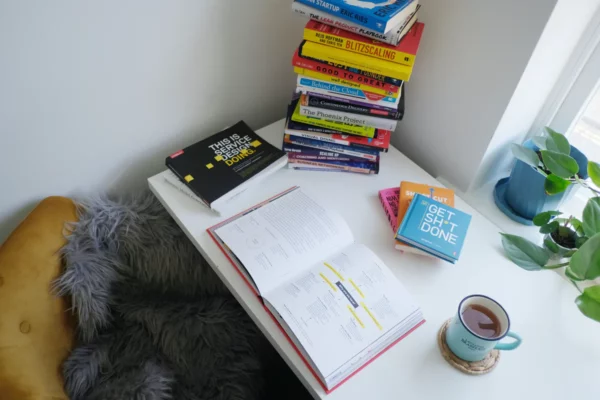
5 Ways Students Can Reduce Stress Whilst Studying

Stress is a common theme amongst the student population, and for good reason. There are coursework deadlines and exams, alongside moving to new towns and cities where you don’t know anyone and you’re probably living away from home and learning how to look after yourself for the first time in your life. Creating a life to reduce stress is therefore very important. Whether it’s looking to student self storage to clear away some items you don’t need in your room to create a clutter-free environment, or managing your sleep and diet better, there are a few different ways students can reduce stress whilst studying.
The impact of stress on students
Stress can come in many different forms and every person has a different trigger that brings on stress and anxiety, as well as coping mechanisms. Some people will react to a stressful situation by:
Changing their behaviours – this could involve completely avoiding a situation they are anxious about, lacking concentration and focus when working, or even turning to crash dieting, or drug and alcohol abuse in extreme circumstances.
Experience physical effects – your heart rate might rise, or you may experience shaking and sweating from nerves, over-breathing, or suffer from headaches and migraines.
Suffering mentally – stress can often lead to panic attacks, anxiety, and the feeling that you are not good enough or that something bad is going to happen. It is easy to fall into a cycle of stress.
It is important to remember that stress is a normal thing for every person. Learning how to identify stress triggers, when to embrace stress and to use it to help you with your actions, and when to take a step away and look after your mental health, takes time.
Ways to reduce stress as a student
Every person is different. Let’s take a look at a few things you can do to help minimise the effects of stress and to maintain a healthy lifestyle as a student, even when living under pressure.
1. Have a sleep routine
Sleep is vital to both our physical and mental health. If your sleeping patterns are all over the place, or you’re not getting enough sleep, it can increase your chances of feeling stressed and exacerbate those periods where you face stressful situations. You should be getting around 8 hours sleep each night and setting up a bedtime routine, that is pretty much the same every night, is the best way to regulate your sleeping and to leave your body and mind in the healthiest place to face stress. We’re not saying you can’t go out for a late night occasionally, or to sleep in a bit on weekends, but generally sticking to a routine helps your overall stress levels.
2. Don’t overstretch yourself
It can be really hard to say no to things, especially when you’re new to a town and want to make friends. If you’ve got a lot of work on, and your social calendar is filling up, it can lead to increased stress levels. You don’t want to let anyone down, but it is vital that you look after yourself. During times of deadlines and upcoming exams, always choose you. If you feel that something is going to be too much, turn down a night out, rearrange a lunch with your friend until after your deadlines, and make sure you’ve got enough headspace and don’t get too stressed out.
3. De-clutter with self storage
Once you’ve managed to work out exactly how you’re going to manage your stress when studying, you might have a few items and belongings that you want to keep but there isn’t quite enough room in your student room without it becoming cluttered again. A cluttered room makes for a cluttered mind, so you should look at alternatives for where you can store these items. There are some amazing student self storage options available where you can put away some personal items and belongings that you want to keep for the future, but you don’t have the room for it in your student room or house at the moment.
These are just a few simple ways that you can reduce stress whilst studying. Your study area is the prime area to work on, decluttering and ensuring that you have the clear space to work cleanly and with focus. If this means finding student self storage options to store some things away, so be it.
4. Exercise and diet
Looking after your exercise and diet is a fantastic way to regulate your physical and mental health. With exercise, it doesn’t have to be a strenuous gym session twice a day, it might be as simple as going out for a long walk on your lunch break or after university. Exercise releases endorphins that make us feel good, so making sure you exercise regularly is fantastic for your mind. Keep a healthy, balanced diet and when stressed with university work, cut out snacks and sugary drinks, instead have fruit that you can pick at, yoghurts, and the odd treat as a reward for hard work.
5. Organise your space
Your student home is your safe space, and it should be comfortable. A messy, unorganised room can lead to stress in itself. If you are stressed out from university and your studies, you need your home to be a relaxing space to unwind and recharge your batteries. If you’re forgetful, have a key tray to put your keys in as soon as you enter the front door (this will help reduce anxiety over finding your items when you leave). Organise the bedding and toiletries so they are away, keep a clean wardrobe and make sure your study space is clean and organised. A clean workspace helps to keep your mind focused when studying, organise paper and folders into labelled sections, have a clear pen pot, and a dedicated space for your laptop that you don’t use for anything else.













































